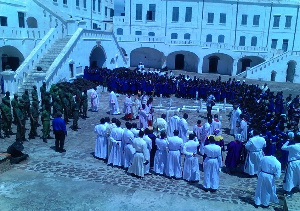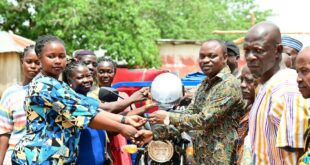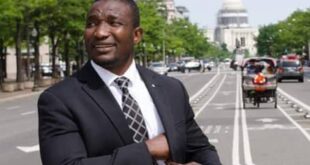The introduction of Christianity and missionary work in the days of slavery and colonialism was well evident in the Gold Coast era.
While the British merchants and rulers established their presence at the Cape Coast castle and other forts, missionary work was in full force and Philip Quaque, a son of the land became a leading force in the Anglican Church who was later ordained as the first African priest of the church.
According to the Edward A. Ulzen Memorial Foundation, Quaque, was born in 1741 at Cape Coast and grew up to become one of three Fante children taken to England to further their education and study missionary work.
This was made possible through a missionary group called the Society for the Propagation of the Gospel (SPG) in 1754.
The SPG under the Anglican missionaries quickly began to expand their efforts in the Gold Coast in a bid to recruit African missionaries.
Through the help of family connections, the group chose to send the young Quaque and two others to England for school to study religious and missionary work.
The two others were Thomas Cobbers, William Cudjoe who later died in 1758 and 1766 respectively. With Philip faring better than the others, he was later baptized at St Mary’s Church, Islington on January 7, 1759.
Before he was ordained as a minister in the Church of England, Philip was first known as Kweku Quaicoe, a name he later changed when he arrived in England.
During his time in London, he studied Theology which later earned him the chance to be ordained as a minister of the Church of England in 1976 and also became the first African to attain the feat.
That same year, Philip Quaque married Catherine Blunt, an English woman. The couple following the wedding ceremony returned back to Cape Coast the following year in 1977.
Upon arrival, the Royal African Company employed Philip Quaque to serve as the chaplain at Cape Coast Castle. At his residence, he set up a small school focused on training Mulatto children who were growing in large numbers at the time.
Shortly after arriving, he was faced with a rather deeper problem as he could not speak his native language of Fante as he was taken away to England at a very tender age.
This made it difficult for him to communicate and connect with the natives of the land. Sadly, within a year another problem was posed to him as his wife, Catherine Blunt passed away at Cape Coast.
Determined to continue his missionary work, Quaque re-married twice but this time to African women and in 1784, he was able to send his two children to study in England.
During his time as a chaplain at Cape Coast, he become famous for his African heritage and English training which helped him to navigate the cultural, religious and racial divide which is still very evident for many clergymen to date.
He is often remembered for his influence on Christian missions and schools established in the then Gold Coast. He helped many Anglican officials, people of African descent, common people and many others in diverse ways.
At the time, he faced a number of setbacks out of which he wrote many letters to the SPG for support but received only three out of five responses in return.
He was often times not compensated by either the SPG or the merchant group that ran Cape Coast castle, forcing him to barter trade in the local marketplace for food and supplies.
While gaining popularity among the natives, the SPG and merchant groups that ran Cape Coast began accusing him of requesting remuneration with little focus on his missionary work.
But this did not deter him as he become known for training a large generation of students who later rose to prominence in the then Gold Coast.
Quaque is however associated with the promotion of the Anglican faith in the Gold Goast era which has now grown in many parts of the country.
On October 17, 1816, Phillip Quaque passed away and was buried at the Cape Coast Castle. Through the years, Philip Quaque’s Day is celebrated at the Cape Coast Castle in remembrance of his works.
 Home Of Ghana News Ghana News, Entertainment And More
Home Of Ghana News Ghana News, Entertainment And More





